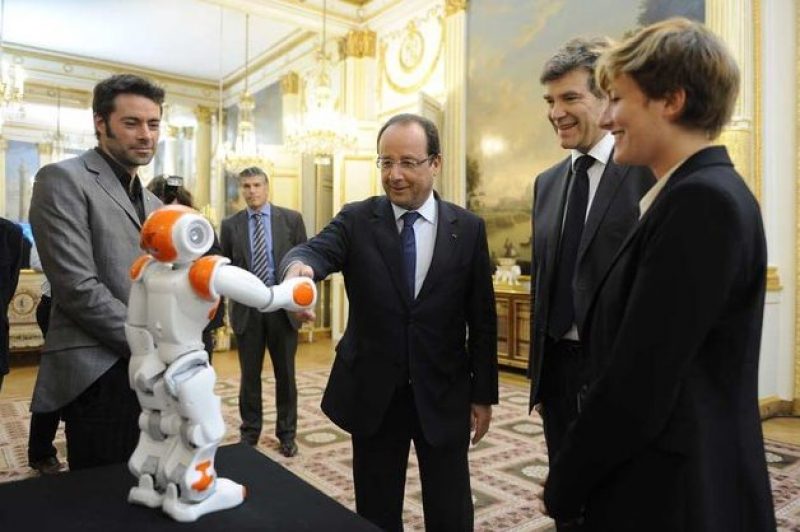They can work with more precision or look after our elderly relatives at home. The robots that can do everything are a dream of the future and France is a country that appears to already have one foot in that future.
This is the message that industry minister Arnaud Montebourg (he actually holds the much more lofty and specific title of Minister for Industrial Renewal) is eager to hammer home. Last Tuesday, he announced the creation of a public-private investment fund of some €80 million – called Robolution Captial – to develop new generations of robots who will drive French exports of the future, creating new industrial jobs growth.
This issue is important because the robotics services market could reach €100 billion in 2018 and €200 billion in 2023, according to the International Federation of Robotics (IFR). So what impact is this “robolution” likely to have on jobs growth in France and just how important is the robotics service industry in the land of the Croissant?
Bruno Bonnell is one of the founders of Robolution Captial. as well as a co-founder of Infogrames (one of the original international computer gaming companies). He’s president of Syrobo; the French robotics union and has a clear vision of why the robotics services revolution will be mostly “Made in France”.
The industrial “robolution” of today, he says, consists of a process whereby “we transfer our intelligence to intelligent machines called robots. They’re much more simple than the imagined world and the fantasy of the android. They have three key features: sensors to understand their environment; processors to analyse and make a decision; actuators such as arms or motors to act within the real world. This is going to develop fast and in five years’ time, we’ll surprise ourselves by saying that in 2014, there were no robots, just like today we wonder how we ever managed without an iPad or an iPhone.”
Bonnell talks of robots already at work in the medical profession, such as robots to help people breathe, which have evolved into intelligent or collaborative machines. Transport by drones in industry as well as robots in agriculture that weed or milk cows are also examples, and he sees the advent of robots for watching over elderly or handicapped people as being a reality within two to five years.

“France is the Calilfornia of Europe”
Former Atari man Bruno Bonnell is upbeat about the position of France in the ‘robolution’
The “robolution” will bring more jobs and money to France, he says, despite the fact that the manufacture of them may be elsewhere: “It’s not in California that iPhones are made but it’s there that they are developed and where the added value of the project is recouped. Applying the same logic to the European case, it’s definitely here in France that these robots will be invented with assembly parts that might be made in different areas including France. The added value and the innovation will be able to remain in France, such as the maintenance and installation services. The IFR predicts that for every robot installed, there will be three jobs created. The robotisation of companies will mean the suppression of menial and repetitive tasks but that will put pressure on a transformation in certain trades.
“When cars first appeared, the trades of coachmen and grooms naturally disappeared… The most important thing is that the balance between jobs created and jobs destroyed remains a positive one. It’s a natural cycle because this destruction of jobs is part of a creative process too. It’s particularly important to follow the evolution of these trades because robotisation will have more of a creative rather than a destructive effect on jobs. You must not under-estimate the capacity of people to adapt, as we have seen with the digital revolution and the internet, which have generated hundreds of thousands of jobs.”
The Salon Innorobo – dedicated to all things robotic – takes place in Lyon from the 18th to the 20th of March.




 Tootlafrance is Ireland’s fresh new eyes on France, bringing you the latest news, exclusive celebrity interviews, political analysis, cultural events, property news and, of course, travel features written by top Irish journalists.
Tootlafrance is Ireland’s fresh new eyes on France, bringing you the latest news, exclusive celebrity interviews, political analysis, cultural events, property news and, of course, travel features written by top Irish journalists.